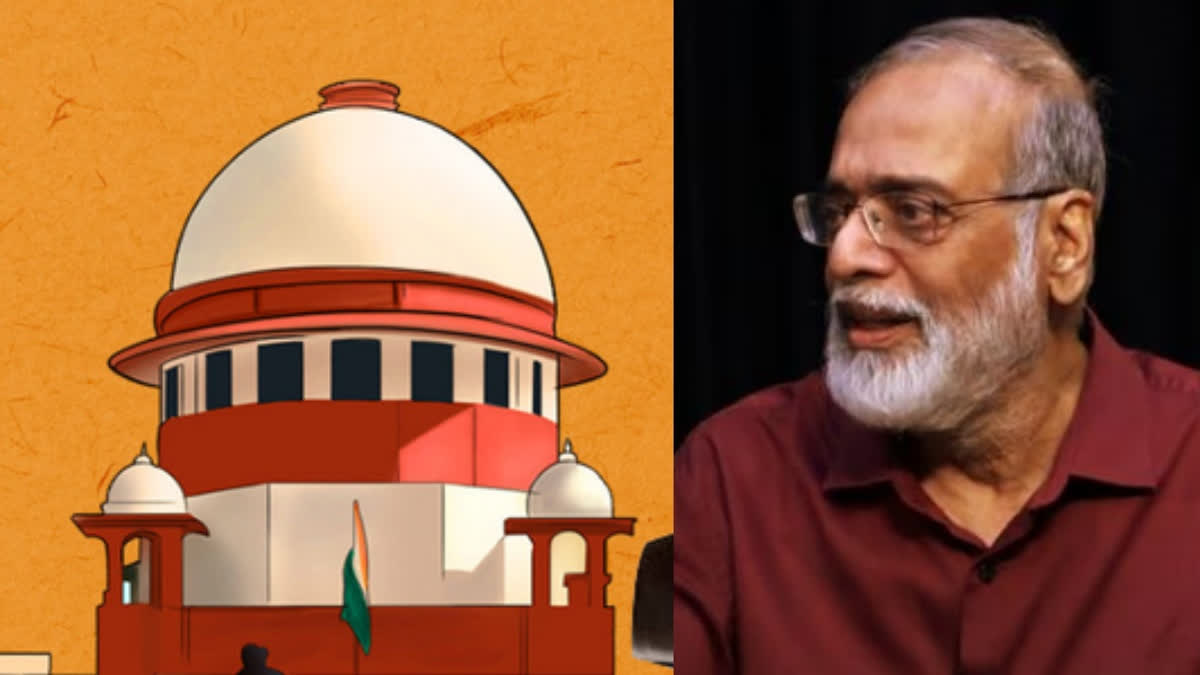New Delhi:The Supreme Court on Wednesday ordered the immediate release of NewsClick founder Prabir Purkayastha, while declaring that his arrest and subsequent remand was “invalid in the eyes of law”.
The apex court also remarked that his arrest and remand was done in a "clandestine manner and was nothing but a blatant attempt to circumvent the due process of law".
A bench comprising Justices B R Gavai and Sandeep Mehta said: “There is no hesitation in the mind of the court to reach to a conclusion that the copy of the remand application in the purported exercise of communication of the grounds of arrest in writing was not provided to the accused appellant or his counsel before passing of the order of remand dated 4th October 2023 which vitiates the arrest and subsequent remand of the appellant”.
Purkayastha was represented by senior advocate Kapil Sibal and advocates Arshdeep Khurana and Nitin Saluja. Sibal had referred to the observations made in the judgment of Pankaj Bansal (2023) and urged that since the grounds of arrest were not furnished to his client at the time of his arrest and before remanding him to police custody, his continued custody is rendered grossly illegal and a nullity in the eyes of law because the same is hit by the mandate of Article 22(1) of the Constitution.
In the Bansal judgment, the apex court had made it mandatory for the Enforcement Directorate to disclose the grounds of arrest in writing to the accused in Prevention of Money Laundering Act
"We have no hesitation in reiterating that the requirement to communicate the grounds of arrest or the grounds of detention in writing to a person arrested in connection with an offence or a person placed under preventive detention as provided under Articles 22(1) and 22(5) of the Constitution of India is sacrosanct and cannot be breached under any situation," said Justice Mehta, who authored the judgment on behalf of the bench.
Article 22(1) reads, 'Any person who is in custody has to be informed as to why he has been arrested', while Article 22(5) says any person is detained shall be informed of the grounds on which the order has been made. The bench stressed that non-compliance of this constitutional requirement and statutory mandate would lead to the custody or the detention being rendered illegal.
The apex court has also widened the scope of judgment in Pankaj Bansal’s case to the anti-terror law, the Unlawful Activities Prevention Act or any other offences. "We have no hesitation in holding that the interpretation of statutory mandate laid down by this court in the case of Pankaj Bansal on the aspect of informing the arrested person the grounds of arrest in writing has to be applied pari passu (equal footing) to a person arrested in a case registered under the provisions of the UAPA”, said the bench.
Justice Mehta said there is no doubt in the mind of the court that any person arrested for allegation of commission of offences under the provisions of UAPA or for that matter any other offence has a “fundamental and a statutory right to be informed about the grounds of arrest in writing” and “a copy of such written grounds of arrest have to be furnished to the arrested person as a matter of course and without exception at the earliest”.
Additional Solicitor General S V Raju had referred to the provisions contained in Articles 22(1) and 22(5) of the Constitution and urged that there is no such mandate in either of the provisions that the grounds of arrest or detention should be conveyed in writing to the accused or the detenue, as the case may be.
